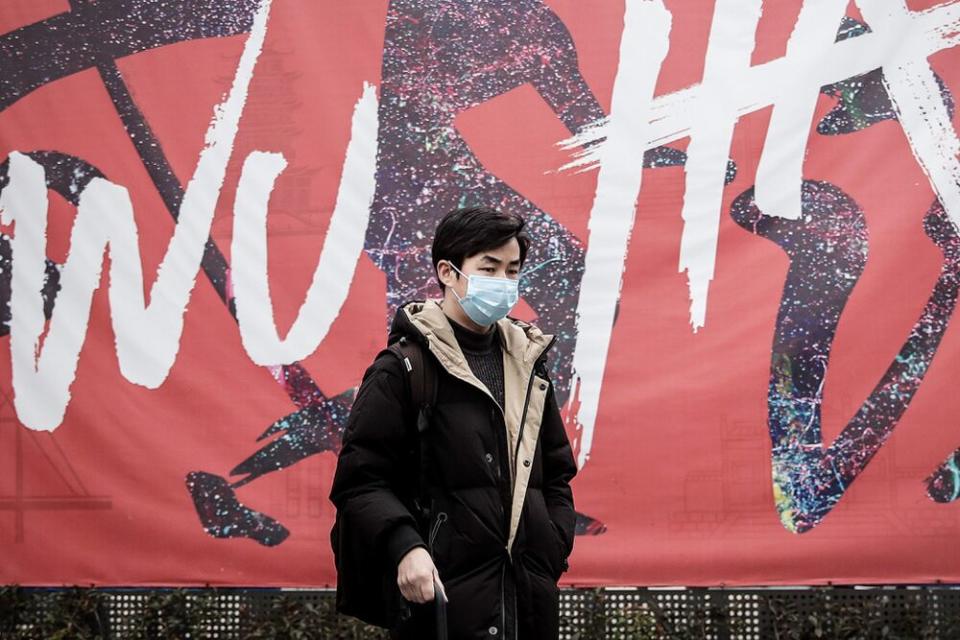China Quarantines Additional Cities and Cancels Lunar New Year Celebrations as Coronavirus Spreads

China is quarantining more cities to stop the spread of the mysterious coronavirus ahead of the Lunar New Year.
The city of Wuhan, which is believed to be the origin of the coronavirus, announced Wednesday that they are quarantining all 11 million residents, closing roadways, railroads, subways and grounding all flights as of 10 a.m. on Thursday. Four neighboring districts have decided to do the same. In total, around 25 million people will be confined to their cities, The Washington Post reported.
Cities all over China have also started canceling plans for Lunar New Year celebrations, the country’s biggest holiday. Typically, Chinese citizens travel throughout the country to celebrate, which amounts to the largest mass migration in the world.
RELATED: What to Know About the Mysterious Coronavirus Spreading in Asia — and How to Protect Yourself
In Beijing, officials are canceling the usual fireworks displays and fairs for the Lunar New Year, or Spring Festival, as it’s known in China. They are also closing the Forbidden City, the palace complex and top tourist attraction, until further notice.
“In order to comply with epidemic prevention and control works, and to put people’s lives, safety, and health in the first place, mass gatherings should be reduced in order to ensure a harmonious and peaceful Spring Festival,” the Beijing Culture and Tourism Bureau said in a statement. “It is decided that Beijing will cancel all large-scale events, including temple fairs, effective from today.”

As of Thursday, the Chinese government says that 17 people have died from the coronavirus, and 638 are sick. Most of the victims, 13 out of the 17, were male, and the average age was 75, with the youngest being a 48-year-old woman and the oldest being two 89-year-old men. The majority of the victims, 11, had preexisting conditions, including hypertension, diabetes and Parkinson’s Disease.
RELATED: First U.S. Case of Deadly Coronavirus Confirmed in Washington State
While the virus started in Wuhan, it has since spread around China and into Japan, South Korea, Thailand, Singapore, Vietnam and the United States, which announced Tuesday that the country’s first case was identified in a man in Washington state. A new study published Wednesday found that the virus may have started in the Chinese krait — a highly venomous species of snake found in central and southern China and Southeast Asia — and the Chinese cobra, CNN reported.
RELATED VIDEO: Dartmouth College Student, Sydney Kamen, Develops Life-Saving Program to Fight Ebola and Other Fatal Diseases
The World Health Organization is currently holding an emergency meeting to determine if they will declare the outbreak a public health emergency.
Guan Yi, a virologist who helped to identify the SARS (Severe Acute Respiratory Syndrom) outbreak in 2003 said that coronavirus could be 10 times bigger than SARS.
“A bigger outbreak is certain,” Guan a professor of infectious diseases at the University of Hong Kong, told Caixin magazine, according to the Post. “We have passed through the ‘golden period’ for prevention and control.”

Guan visited Wuhan earlier this week to help identify the source of the virus, and said that he left feeling “powerless, very angry.”
RELATED: U.S. to Implement ‘Enhanced Health Screenings’ at 3 Airports Amid Deadly Virus Outbreak in China
In the U.S., the Centers for Disease Control said that the risk to Americans is “low.” However, they have implemented “enhanced health screenings” at five major airports in San Francisco, New York City, Los Angeles, Chicago and Atlanta.
The coronavirus can spread from person to person through the air or by touch. Those entering the U.S. on flights from China will have their temperature checked upon arrival.
“When traveling, I would be a little more cautious right now, not just because of the coronavirus, but also because of the terrible flu season we are in,” Nicole Avena, assistant professor at Mount Sinai Medical School, tells PEOPLE. “Personally, I am more afraid of the flu than coronavirus.”

 Yahoo News
Yahoo News 
